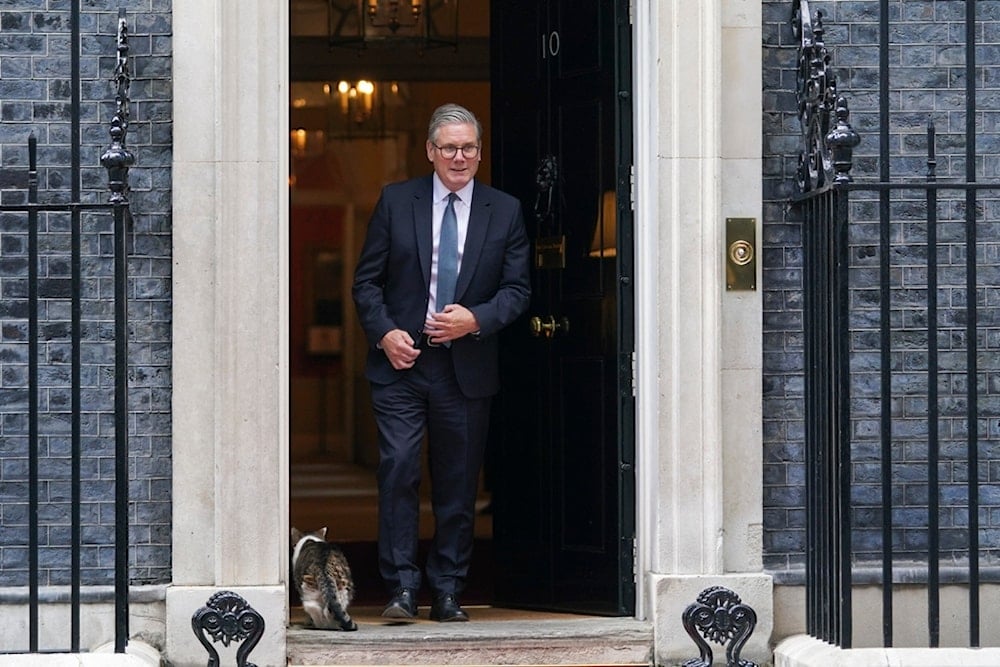UK labels Russia 'immediate threat', pledges $3bln to Ukraine
The United Kingdom labels Russia an "immediate threat" as it boosts defense spending and its military aid to Ukraine.
-

Britain's Prime Minister Keir Starmer steps out of 10 Downing Street to greet Cyprus's President Nikos Christodoulides, in London, Wednesday, May 21, 2025. (AP)
The United Kingdom unveiled its new Strategic Defense Review on Monday, designating Russia as an “immediate and pressing threat” and reaffirming long-term military and economic support for Ukraine, with funding commitments of up to £3 billion ($4 billion) annually "for as long as it takes."
UK Prime Minister Keir Starmer underscored the growing perceived threat from Russia, citing increased “aggression” in British waters, airspace, and cyberspace. The Russian Embassy in London dismissed the accusations as politically motivated.
The review highlights Russia’s continued military modernization and warns that its sustained war economy enables rapid reconstruction of land forces should there be a ceasefire in Ukraine. It also flags potential threats from Russia in space, cyber operations, undersea warfare, and the use of chemical and biological weapons.
In addition to bolstering Ukraine’s military capacity, the UK intends to establish joint enterprises with Kiev and facilitate Ukraine’s access to international markets, deepening long-term bilateral cooperation.
The review stresses the need for the UK’s armed forces to draw operational lessons from the ongoing conflict in Ukraine, particularly in drone warfare and hybrid military tactics. These insights will inform the evolution of British defense doctrine in a new era of high-tech, multi-domain conflict.
Uptick in domestic military productions
A significant part of the strategy includes a £6 billion investment in domestic munitions production over the current parliamentary term. This will fund the construction of at least six new munitions and energetics factories and establish a £1.5 billion "always-on" supply pipeline to ensure sustained readiness.
With the revised document replacing the previous 2021 strategy, UK defense spending is now set to rise to 2.5% of GDP by 2027, aligning with NATO targets and reflecting a growing emphasis on industrial defense capacity and alliance cohesion in light of the Ukraine war.
Meanwhile, Russian President Vladimir Putin has denied any intent to attack NATO members, accusing Western leaders of inflating the Russian threat to distract from domestic crises. The Kremlin reiterated that Moscow seeks no conflict but remains alert to NATO’s military posture near its borders.
NATO pressures allies to raise military budgets
Amid concerns from US President Donald Trump over NATO burden-sharing, Healey pledged that the UK will boost its defense spending to 3% of its GDP by 2034.
This target could add over £10 billion in annual military spending, reinforcing Britain’s standing within the alliance.
Other proposals in the review include the creation of an underwater surveillance program to protect undersea infrastructure and the reintroduction of a volunteer Home Guard unit to defend critical sites like airports from drone and cyber threats.
Moreover, the EU recently announced plans to unlock €800 billion in military spending, while NATO allies are considering raising their defense targets to 5% of GDP ahead of the alliance’s annual summit later this month.

 3 Min Read
3 Min Read










